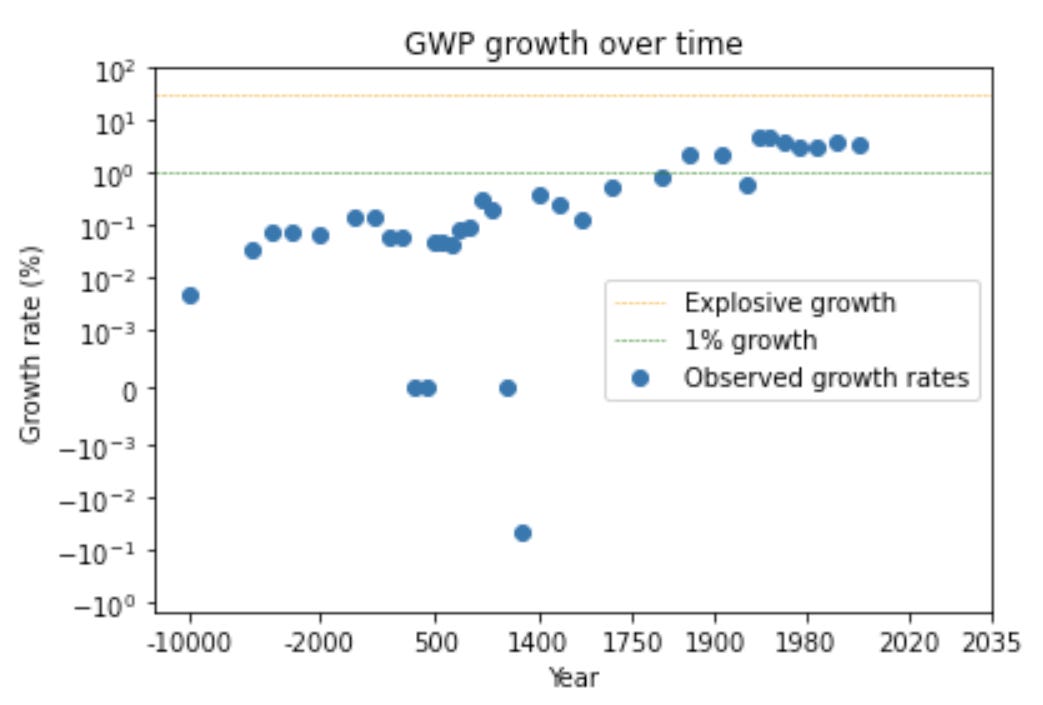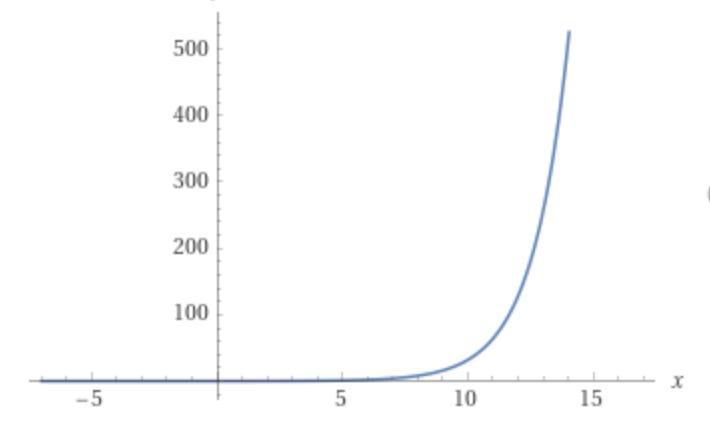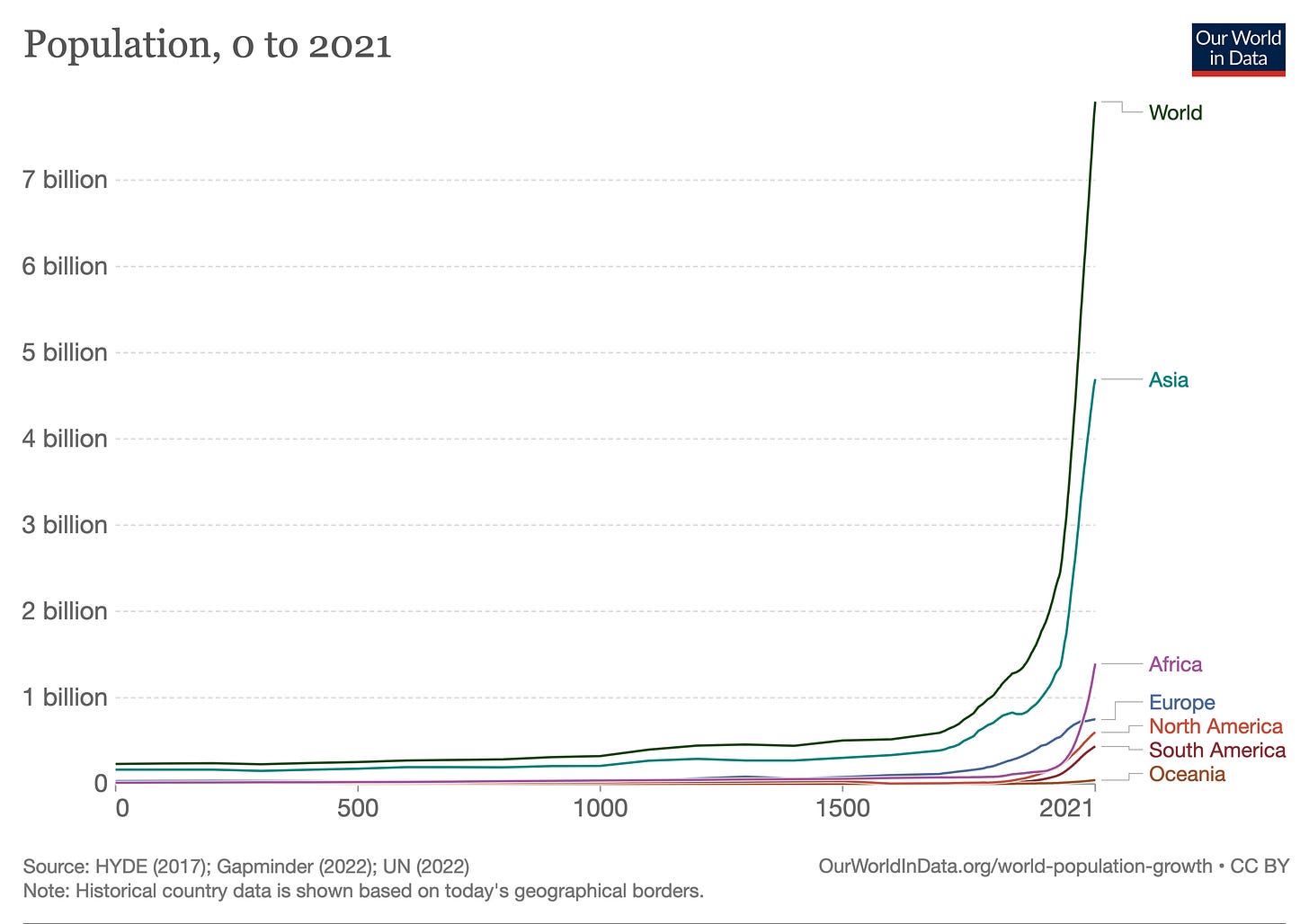Could AI Drive Explosive Economic Growth?
AI is an important technology which seems poised to radically alter global economy by automating a number of jobs. But could it? By how much?
We’ve already looked at how soon AGI may arrive. But what would this mean for the world? One way of answering this question is through an economic lens — economics can be used to look at how people consume things, how well off people are, and a rough measure of people’s quality of life.
A report from Open Philanthropy shows that there’s a strong chance of AI causing ‘explosive growth’ this century. What this means is roughly that AI would cause a huge change in the quality of people’s lives, on the level of the industrial revolution. The industrial revolution is famous for reducing workers’ quality of life — but this eventually passed, with us all enjoying the benefits of industrialisation today1.
We’ll look at what we mean by explosive growth, why we might expect explosive growth this century based only on simple economic models, and why we might expect explosive growth based on an understanding of AI.
What is Explosive Growth?
Understanding explosive growth requires understanding ‘GWP’, the Gross World Product (related to GDP, the Gross Domestic Product). There are two ways of understanding GWP.
First, we can think of GWP as the number of people in the world multiplied by the average income of those people. Historically, GWP has increased due to both these things; more people and an increase in the income of those people.
Another way of understanding GWP is the total amount of stuff produced by the economy each year, and how much that stuff costs. These views are equivalent because everything that’s bought has to be sold — and selling things creates income. From this view, we could increase GWP by either increasing the amount of stuff bought and sold (like more people buying laptops), or by increasing the price of those things (like increasing the quality of laptops). Again, historically GWP has increased because of a combination of these factors.
‘Explosive Growth’ means a very rapid increase in GWP, like 30% each year. This would mean the world economy doubling every 2-3 years. In recent times, the economy has been doubling every 20-30 years, so this would represent a 10x increase. If this increase was led by AI then this wouldn’t mean an increase in population, but income — so the average income would go up by 30% each year instead of a few percent. Equivalently, people would be able to consume 10x as much stuff, or 10x the quality of stuff (likely some combination of the two).
Why Might We Expect Explosive Growth?
Over time, the rate at which GWP has grown has increased slowly:
The % on the left shows how quickly the GWP grows; ‘100’ just means 1%; if GWP is 100 in 1750, it’s 101 in 1751. The fact that the rate has been going up over time2 means that people’s lives are getting better (or there are more people) more quickly over time. Why is the rate increasing?
One theory is that some people come up with ideas that improve technology for creating food (or other ideas), so then they’re able to support a larger population, who come up with more such ideas, so they’re able to support a larger population, etc:
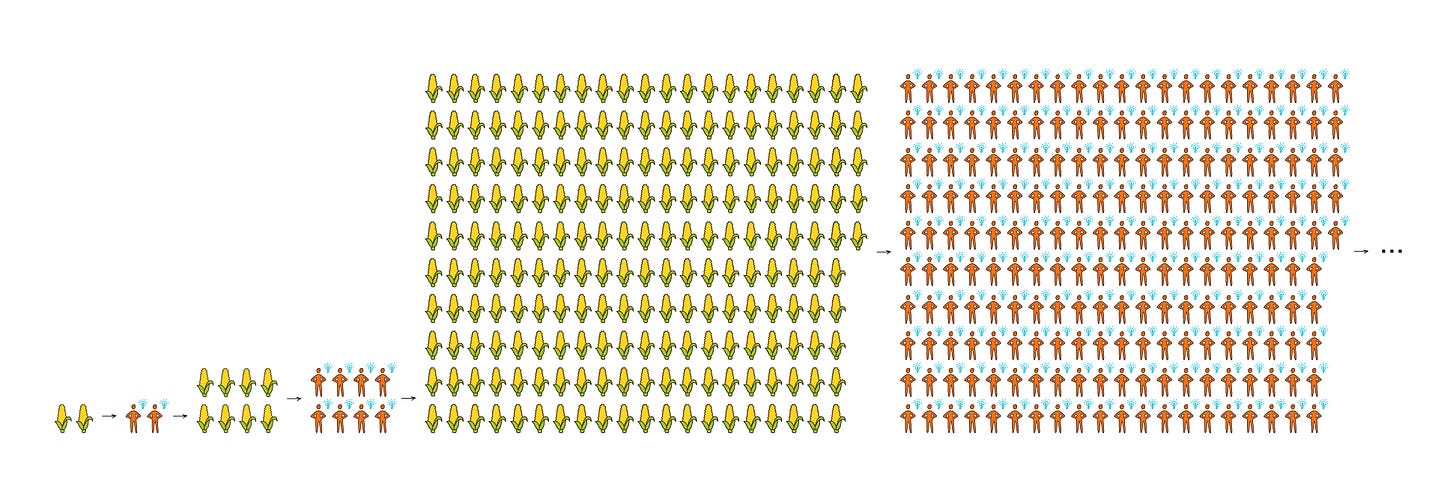
This is a bit like how bacteria grow so quickly; because each bacterium is able to split in two; then, when there’s twice as many bacteria the population grows twice as quickly, causing ‘exponential growth’:
Here’s a graph of GWP over the past 2,000 years. Look familiar?
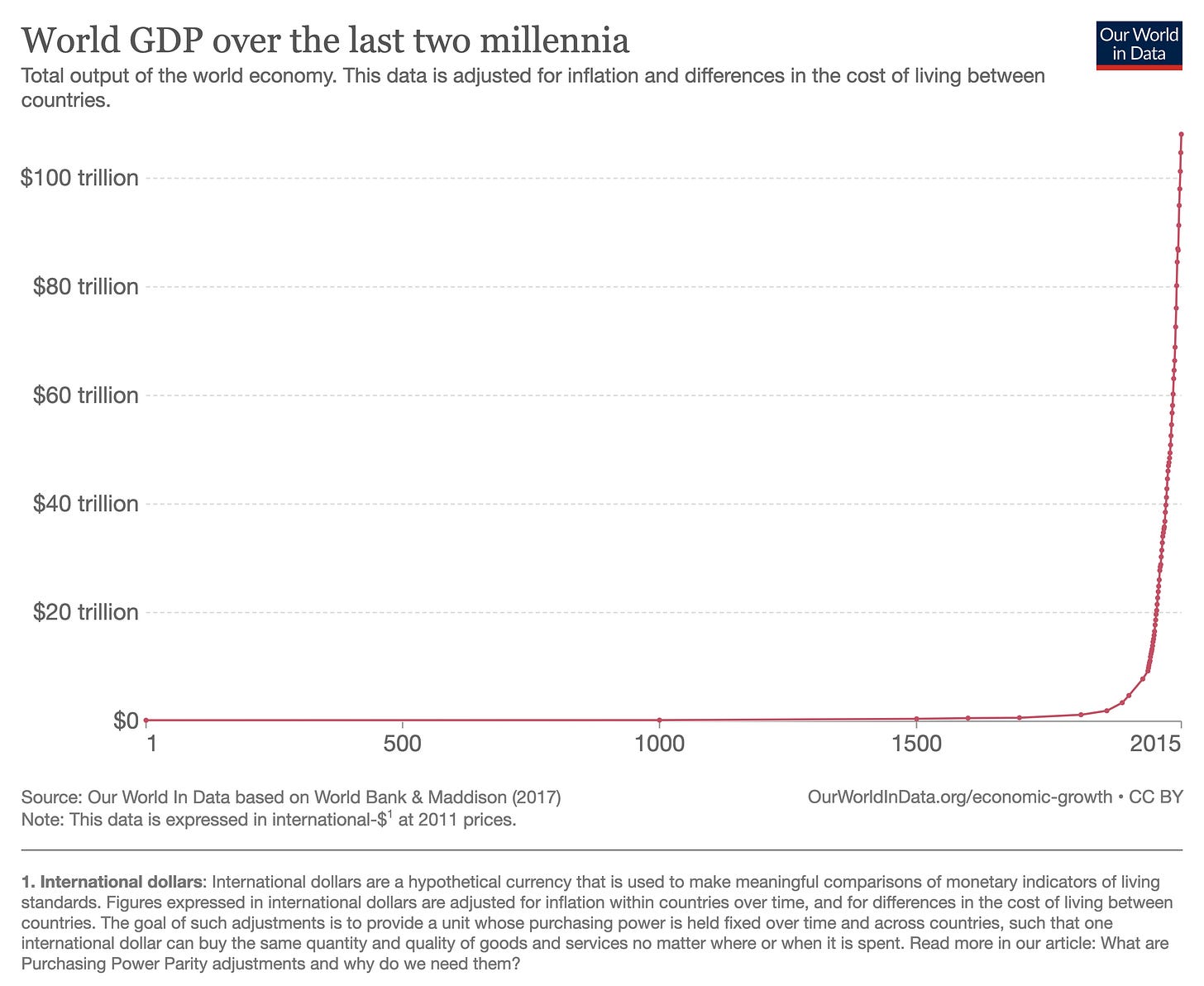
This means that, on a really long timescale, we’re already experiencing something like ‘explosive growth’— expecting the trend of increasing growth to continue doesn’t seem implausible. To show that it’s plausible that this increase is being driven by an increase in human population, here’s a graph of human population over the same timescale:
The reason that GWP growth looks even more extreme than the bacterial graph is because it is: bacteria grow at a constant %, they double the population at a given rate. Humans, as we’ve shown, are growing at an increasing rate over time.
While there are counterarguments3 to this model, it does provide some context for why we might expect explosive growth to happen soon. The growth of GDP has sped up 100x over human history, so it seems plausible that we might see another 10x increase.
Why Might AI Cause Explosive Growth?
If, in the past, ideas have been the key constraint on economic growth — more people coming up with more ideas to allow for more people — then we might expect AI to cause explosive economic growth. Why is this?
For one, Large Language Models (LLMs) are likely already able to help automate a number of jobs — OpenAI estimates that approximately 80% of the U.S. workforce could have at least 10% of their work tasks affected by the introduction of current LLMs like ChatGPT or GPT-44. Because AI is much faster at many tasks than humans are, this would allow humans to do more of the tasks that AI are not as good at, and massively boost GWP.
It also seems plausible that will soon be able to help researchers come up with new ideas, help research, or even fully automate research. Already, simple AI has been useful in helping researchers understand how proteins fold, and LLMs are capable of helping researchers come up with new ideas, or understand existing research more quickly. Indeed, OpenAI’s plan for making AI safe depends largely on automating research.
If LLMs are able to more seriously aid in research, we’ll see a similar feedback loop to humanity — if AI are able to do AI research, we’ll then have faster, better AI, which can generate more ideas for speeding up AI, etc.
Additionally, training AI takes a lot more resources than using it — meaning that once you’ve trained an AI, it’s easy to run many copies of it. You can see this in the success of ChatGPT — OpenAI invested a lot of resources in training ChatGPT, but were then able to run so many copies of it that hundreds of millions of people are able to use it. Because of this, as soon as an even larger model is trained that’s more capable of helping with research, many copies of it will be able to run cheaply, all coming up with new ideas for research.
The report concludes with some critiques of these theories, and suggestions that growth might stay the same or even go down. For instance, there may be bottlenecks in increasing AI — acquiring the resources to build them, or taking the time to actually run the experiments suggested by AI. This could slow down the rate of growth. It’s also plausible that ideas are becoming harder to find — once all the low-hanging fruit has been found, it may be increasingly difficult to find new ideas to speed up AI or other research, which would again slow down growth.
The report concludes that it’s around 25% likely that AI will drive explosive growth this century, though the author notes their uncertainty about this estimate.
So AI might cause explosive growth this century. Explosive growth seems plausible from simple economic models and from a ‘people→ideas→more people’ feedback loop being replaced by an ‘AI→ideas→more AI’ feedback loop.
For another view on what we might expect from AI progress, you can read this post.
To demonstrate this briefly: think about the fact that you have power to your home, internet access, a phone, likely a car or access to public transport, etc.
The large dips where there’s a decrease in GWP are likely driven by plagues and other massive world events which reduce world population significantly.
See the literature review for a full description. Briefly, it seems like the increase in economic growth has been slowing recently. This could be for a number of reasons, such as that people have, on average, using technology to get richer rather than have more kids in the past few hundred years. This means there aren’t more ideas generated with each successive generation, predicting a constant growth in GWP according to our simple model above.
Keen readers might note that OpenAI has some reasons to overestimate this number (i.e. it makes the technology they make look good). But they do know a lot about AI, and they would have to have overestimated it by a lot to seriously change things.


